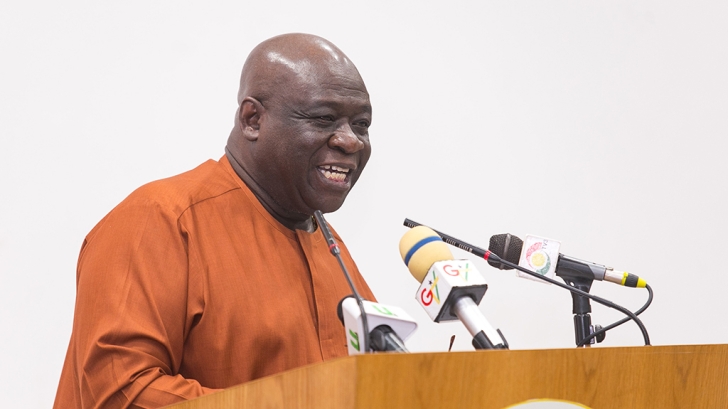
Removal of non-tariff barriers to trade will deepen AfCFTA — Dr Fareed Arthur
The removal of non-tariff and some technical trade barriers will ensure the effective implementation of the African Continental Free Trade Area (AfCFTA), the National Coordinator of the AfCFTA Coordination Office, Dr Fareed Kwesi Arthur, has stated.
He explained that the barriers include excessive delays and ad hoc fees being charged at some borders, cumbersome document requirements and restrictive regulations on product standards, including other legal requirements, that countries enact to ensure that products are safe to protect the environment or for reasons of national security.
Dr Arthur acknowledged that though some of the barriers, including movement checks for purposes of ensuring national security, may be difficult to remove, a lot needed to be done to remove the barriers to ensure full and effective AfCFTA implementation on the ground.
The national coordinator stated these on the sidelines of a forum otherwise known as a side event on exploring the role of civil society to accelerate the implementation of AfCFTA, in Accra, on Saturday (July 20, 2024).
The event was also to commemorate the 20th anniversary of the Economic, Social and Cultural Council (ECOSOCC), an Advisory organ composed of different social and professional groups of African Union (AU) Member States.
It was aimed at increasing awareness of the AfCFTA among participants, which included representatives from Civil Society Organisations (CSOs), policymakers and government officials, the private sector, academia, research institutions and international development partners.
The event was jointly organised by the West Africa Civil Society Institute (WACSI), ECOSOCC, the AfCFTA Policy Network (APN) and other partners.
Removal of barriers
Dr Arthur called on CSOs to be more proactive and promote what he described as targeted advocacy to encourage African governments to remove trade barriers.
“I always say that AfCFTA will not be implemented in the boardrooms. AfCFTA is going to be implemented on the borders with the women who cross the border with their goods, the men who cross the border with their goods and so on.
And the only way we can get governments to push and remove some of the barriers is by getting civil society advocacy properly and purposefully targeted,” he stressed.
He, however, dispelled the perception that implementation of the AfCFTA had been dormant for the past four years, stressing that “47 countries have ratified the agreement, which is unprecedented in Africa. So, there is a lot of political commitment.”
Benefits, purpose
Touching on the benefits of the AfCFTA, Dr Arthur said a successful implementation of the policy would ensure the removal of non-tariff and technical barriers to facilitate increased trading among African countries that currently suffer from low levels of inter-regional trade and high tariffs.
“It is, therefore, fair to say that its successful implementation will promote economic integration and development, regional peace and stability, shared prosperity for all African countries and citizens,” he added.
Dr Arthur reminded the participants that the main purpose of AfCFTA was to create a single market for goods and services across Africa and to boost intra-African trade and economic growth, adding that AfCFTA was launched in March 2018 and its successful implementation will create a market of over 1.3 billion people with a Gross Domestic Product of over $3.4 trillion.
Advocacy
The Executive Director of WACSI, Nana Asantewa Afadzinu, also said advocacy must be strengthened to ensure that the trade agreement actually changed the fortunes of citizens on the continent.
She further called for urgent steps to ensure an inclusive implementation of the AfCFTA, including halting trade barriers and free movement of goods and services.
Acknowledgement
The Policy Officer of AU ECOSOCC Secretariat in Lusaka, Zambia, Bright Sefa, acknowledged that some work had been done by some African leaders to ensure, for instance, the implementation of free visa policies.
He, however, said a lot needed to be done to ensure that the progressive implementation of the AfCFTA translated into reality at the grassroots.
 Click the link to read your copy.
Click the link to read your copy.